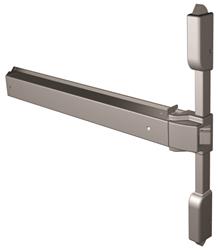
For one thing, these devices can be made by anyone, meaning they aren’t medical grade and may not work as well, if at all.

Sounds like a dream, right? Not so much.Īlthough fetal dopplers can be purchased easily online, they’re not recommended by doctors of the Food and Drug Administration (FDA).
#Lyricsx touch bar how to#
Most doctors don’t end up using stethoscopes anymore, since the technology of ultrasounds and fetal dopplers can be so much faster and easier.Ī quick search on how to hear a baby’s heartbeat will give you some exciting news: it might be possible to detect the baby’s heartbeat on your own, in the comfort of your home, with no doctors present. StethoscopeĪ stethoscope isn’t going to produce the results you want until you’re about 18 to 20 weeks, and even around that time, it depends on a few things, such as your weight, how the baby is positioned, and the location of the placenta. A fetal doppler can pick up on the heartbeat as well. That’s how it’s different than a standard ultrasound, which can’t show blood flow. DopplerĪ doppler is another type of noninvasive ultrasound that uses sound waves to detect blood flow and diagnose certain conditions like blood clots, blocked arteries, or heart issues. A transvaginal ultrasound is also the most reliable and accurate way to detect a heartbeat so early on.Īfter a few weeks, when transvaginal is no longer necessary, a doctor can find the heartbeat through a standard abdominal ultrasound, which is like the image you’ve probably seen in dozens of movies and television shows: a transducer being rubbed over a pregnant belly. This helps doctors get a clear visual of the fetus and uterus, and can help confirm a healthy pregnancy as well as how many babies are in there. UltrasoundĪt your first appointment, the doctor will likely pick up your baby’s heartbeat through a transvaginal ultrasound, where a probe is inserted into the vagina. There are a few other ways to get more of that sweet, sweet sound. Hearing your baby’s heartbeat requires a little bit more than just listening closely - in fact, it can be nearly impossible to hear it with the human ear. They don’t want you getting nervous if they can’t pick up the heartbeat earlier than that. This is why doctors often recommend waiting until you’re about 8 weeks pregnant before you come in for your first ultrasound (though that could still be too early!). That said, the best chance of hearing those wonderful beats doesn’t come until around 6 1/2 to 7 weeks after gestation.

If a doctor put a stethoscope on a pregnant person’s belly at 6 weeks, they likely wouldn’t hear a heartbeat, and that’s because the baby’s heart hasn’t fully formed yet. A vaginal ultrasound is typically required to pick up that first sound. How long do you have to wait?Ī legitimate fetal heartbeat may first be detected as early as 5 1/2 to 6 weeks after gestation. Unfortunately, it doesn’t always happen quite as quickly as you’d like. Since the second you found out you were pregnant, you’ve probably been anxiously awaiting the day you can hear baby’s strong and healthy heartbeat, which can be reassuring for new parents.


 0 kommentar(er)
0 kommentar(er)
